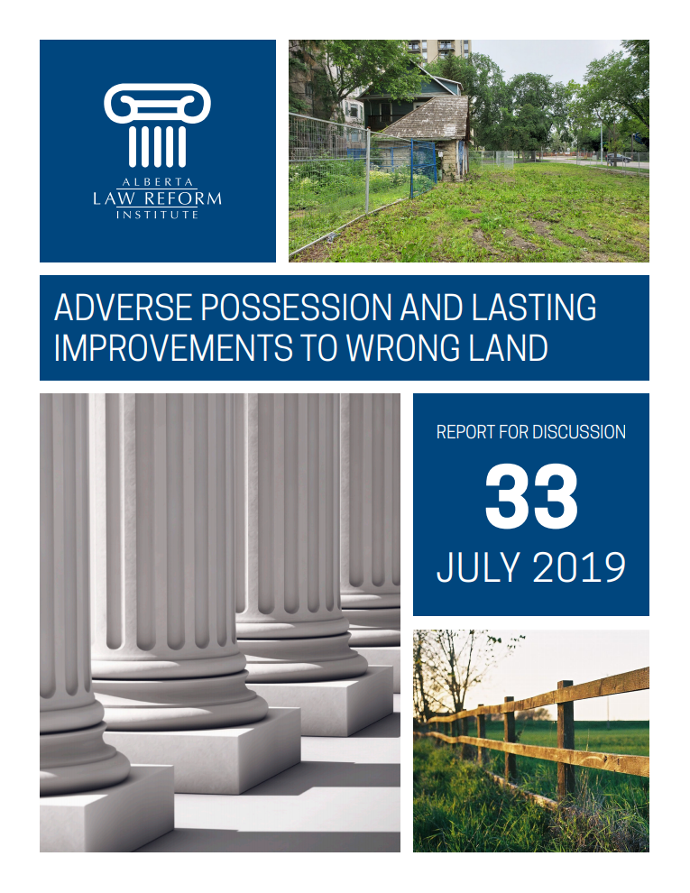
An ancient legal doctrine that allows someone who has occupied another person's land to possibly claim ownership of it should be abolished in Alberta, says the Alberta Law Reform Institute (ALRI), which is housed in the Faculty of Law at the University of Alberta.
Albertans have until October 1 to comment on whether they agree with ALRI's recommendations.
The legal doctrine at issue is called adverse possession of land. It originated centuries ago in the common law of England and Alberta is one of the few Canadian provinces where it still exists.
It originally served a valid purpose, said Stella Varvis, legal counsel for ALRI, who conducted the main research and analysis for the report it delivered to the provincial government in July.
"Once upon a time, when title to land was difficult to prove or establish, a person's claim to land was often rooted in possession. Eventually, the time for possession was set at 10 years," she said.
Now, land titles are maintained and guaranteed by the government and adverse possession is not a common claim in Alberta, but it has certainly arisen a few times in recent years, to the detriment of some landowners.
Fixing the law aligns with the common sense approach that modern Albertans generally feel is fair, said Varvis - that "no one should be able to claim your property without compensation and a person who has paid title to their land should be able to recover possession at any time."
Adverse possession cases tend to fall into one of three categories.
A registered property owner may want to recover possession of their land, or an occupier of land may want to claim "quiet title" because they have had exclusive, continuous, open possession for 10 years or more. In a third scenario, a claim for compensation might be put forward by an occupier who has made a lasting improvement to land under the mistaken belief that it was theirs.
Eliminating adverse possession would actually clarify Alberta laws on land possession and allow courts to use their discretion to craft equitable solutions that balance the interests of both registered owners and occupiers, said Varvis.
That's because there is another law, section 69 of the Law of Property Act, that also deals with land disputes between registered owners and occupiers. Relying on section 69 would prevent deliberate trespassers from benefiting from their actions. With adverse possession no longer available as a standalone claim, section 69 would be the primary method of resolving these types of disputes.
Such tidying up of the law is why ALRI was formed more than 51 years ago. As Canada's longest-standing full-time law reform agency, it conducts independent research, consultation, and analysis, and then gives the government recommendations on how to fix Alberta laws that are ineffective or out-of-date.
The process includes a heavily researched Report for Discussion, followed by a consultative period including a request for feedback from the public, which is what is being called for by October 1. ALRI will consider that feedback and incorporate it into the Final Report that is submitted to the government.
"While it is possible that there are some limited circumstances in which adverse possession works well to resolve disputes between neighbours, we take the position that there are other, better ways to resolve these types of disputes," said Varvis. "Abolishing adverse possession recognizes the reasonable expectations of landowners by promoting security of title and equitable resolution of disputes."
ALRI intends the final report to be finished in 2020.